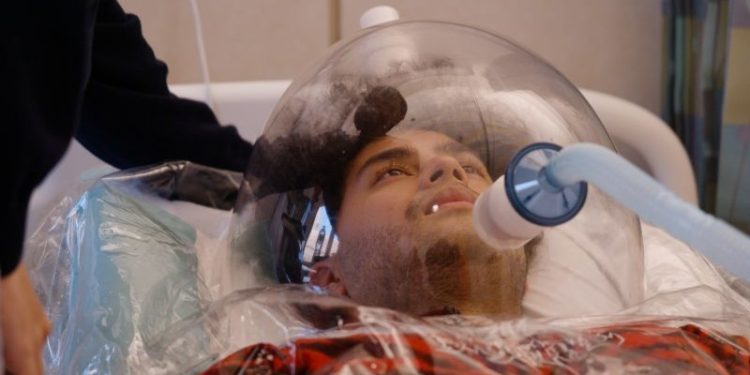As you add more ultraprocessed foods to your diet, your risk of a premature death from any cause rises, according to a new meta-analysis of research involving more than 240,000 people.
“We looked at the risk of a person dying from eating more ultraprocessed foods between the ages of 30 and 69, a time when it would be premature to die,” said study coauthor Carlos Augusto Monteiro, emeritus professor of nutrition and public health in the School of Public Health at Brazil’s University of São Paulo.
“We found that for each 10% increase in total calories from ultraprocessed foods, the risk of dying prematurely rose by nearly 3%,” said Monteiro, who coined the term “ultraprocessed” in 2009 when he developed NOVA, a system of classifying foods into four groups by their level of processing.
Group one of the NOVA system is unprocessed or minimally processed foods in their natural state, such as fruits, vegetables, meat, milk and eggs. Group two includes culinary ingredients such as salt, herbs and oils. Group three consists of processed foods that combine groups one and two — canned goods and frozen vegetables are examples.
Group four includes ultraprocessed foods. By Monteiro’s definition, ultraprocessed foods contain little to no whole food. Instead, they are manufactured from “chemically manipulated cheap ingredients” and often use “synthetic additives to make them edible, palatable and habit-forming.”
“No reason exists to believe that humans can fully adapt to these products,” Monteiro cowrote in a 2024 editorial in the journal The BMJ. “The body may react to them as useless or harmful, so its systems may become impaired or damaged, depending on their vulnerability and the amount of ultra-processed food consumed.”
The new study is misleading and will lead to consumer confusion, said Sarah Gallo, senior vice president of product policy for the Consumer Brands Association, which represents the food industry.
“Demonizing convenient, affordable and shelf ready food and beverage products could limit access to and cause avoidance of nutrient dense foods,” Gallo said in an email, “resulting in decreased diet quality, increased risk of food-borne illness and exacerbated health disparities.”
Just a serving a day matters, studies say
This study is not the first to find an association between negative health outcomes and small increases in ultraprocessed food.
A February 2024 study found “strong” evidence that people who ate more ultraprocessed food had a 50% higher risk of cardiovascular disease-related death and common mental disorders.
Higher intake of ultraprocessed foods might also increase the risk of anxiety by up to 53%, obesity by 55%, sleep disorders by 41%, development of type 2 diabetes by 40% and the risk of depression or an early death from any cause by 20%.
Researchers in the February study defined a higher intake as one serving or about 10% more ultraprocessed foods per day.
A May 2024 study found that adding just 10% of ultraprocessed food to an otherwise healthy diet may also increase the risk of cognitive decline and stroke, while 2023 research determined that including 10% more ultraprocessed foods was linked to a greater chance of developing cancers of the upper digestive tract.
It’s estimated that as much as 70% of the US food supply is ultraprocessed.
A global estimate of preventable deaths
The latest study, published Monday in the American Journal of Preventive Medicine, took an additional step by estimating how many deaths might be prevented in eight countries with low, medium and high consumption of ultraprocessed foods.
“Premature preventable deaths due to the consumption of UPFs can vary from 4% in countries with lower UPF consumption to almost 14% in countries with the highest UPF consumption,” lead study author Eduardo Augusto Fernandes Nilson, a researcher at the Oswaldo Cruz Foundation in Rio de Janeiro, said in a statement.
However, it’s important to note that the study was unable to determine if the deaths were “caused by UPF consumption. The methods of this study simply cannot determine this,” said nutrition scientist Nerys Astbury, an associate professor of diet and obesity at the UK’s University of Oxford, in a statement. He was not involved in the study.
The United States has the highest level of ultraprocessed food consumption in the world — nearly 55% of the average American’s diet, according to the study. Researchers estimated reducing the use of those ultraprocessed foods to zero would have prevented over 124,000 deaths in the US in 2017.
In countries where consumption of ultraprocessed foods is low, such as Colombia (15% of the diet) and Brazil (17.4%), reducing the use to zero would have prevented nearly 3,000 deaths in the former country in 2015 and 25,000 deaths in the latter in 2017, according to the study.
“The authors set the theoretical minimal risk level to be 0. This implies a scenario where all UPFs are eliminated, which is highly unrealistic and nearly impossible in our current society,” Zhang said in an email. “As a result, the estimated burden of pre-mature death due to UPFs could be overestimated.”
Stephen Burgess, a statistician in the MRC Biostatistics Unit at the UK’s University of Cambridge, said that while the study cannot prove the consumption of ultraprocessed foods is harmful, “it does provide evidence linking consumption with poorer health outcomes.”
“It is possible that the true causal risk factor is not ultraprocessed foods, but a related risk factor such as better physical fitness — and ultraprocessed foods is simply an innocent bystander,” said Burgess, who was not involved in the study, in a statement. “But, when we see these associations replicated across many countries and cultures, it raises suspicion that ultraprocessed foods may be more than a bystander.”






